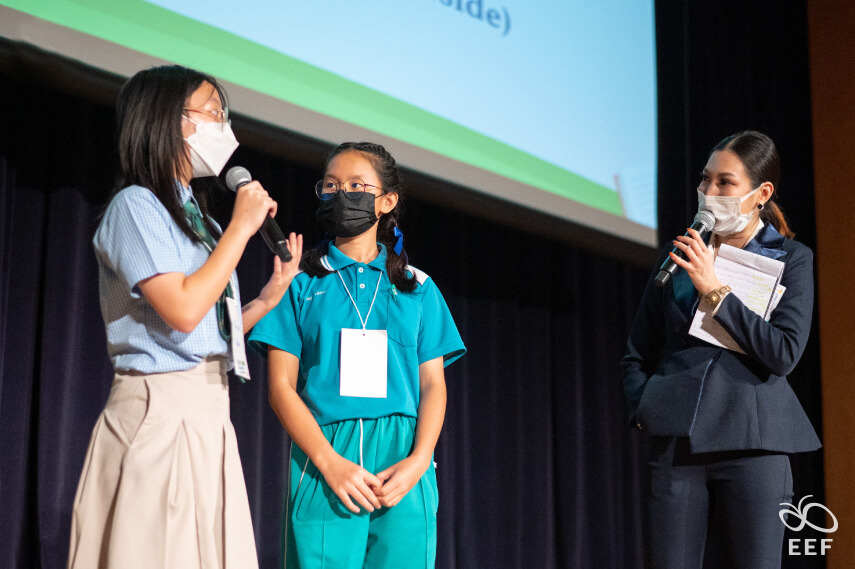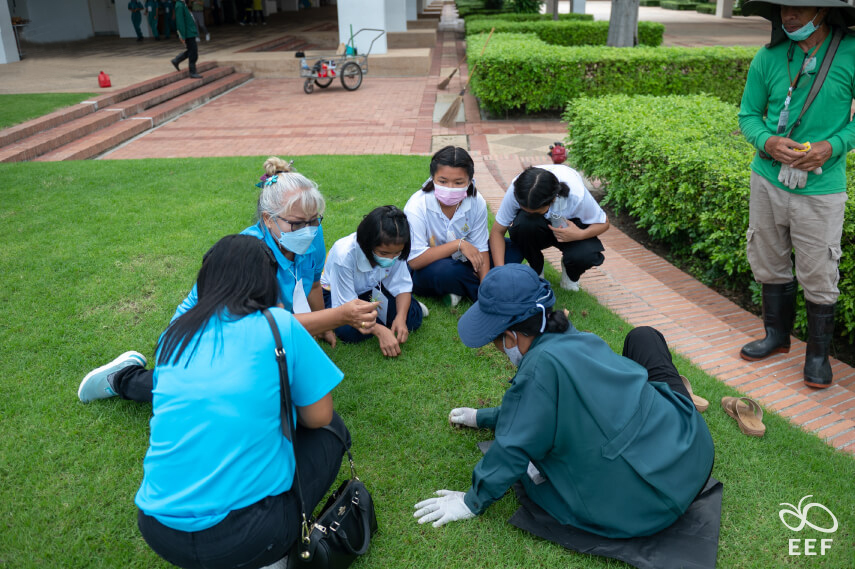
Bangkok 17 September 2022 – The Equitable Education Fund (EEF) in collaboration with SEA (Thailand) and Shrewsbury International School Networks is moving forward to create a model to reduce the inequity with innovative ideas under the Equity Partnership’s School Network Season 4 project. This shall open up the opportunity for students from rural and urban schools to exchange and share their learning experiences for the development of knowledge, capability, and career skills, in line with the promotion of social and emotional skills, which are essential in the lives of children and the society nowadays. Also, it is targeted to expand the model up to the international level through the networks of international schools in Singapore and England.
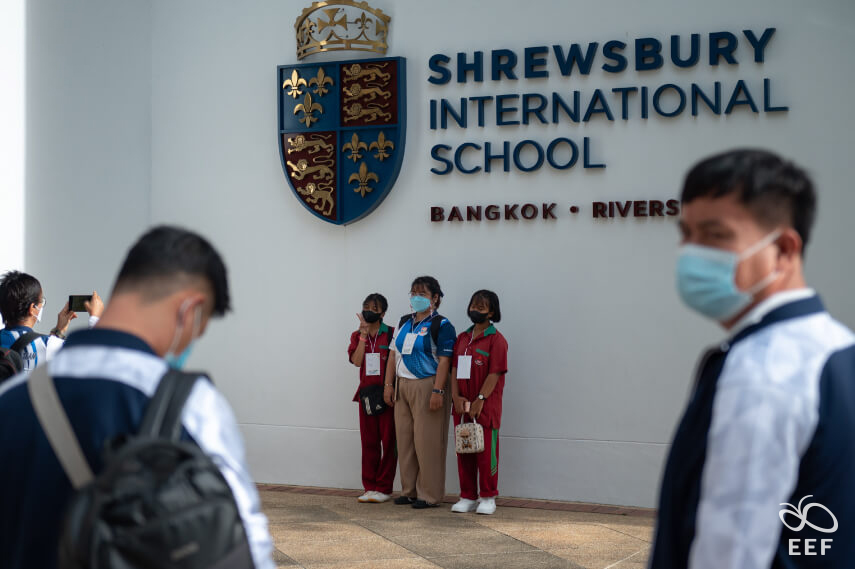
Dr. Kraiyos Patrawart, Manager of the Equitable Education Fund (EEF), said that the Equity Partnership’s School Network has been organized continuously until the 4th year to build on the success during the first three years with great support from many parties and the public sector in transferring funds to network schools and distributing incomes to local communities. In the meantime, it is crucial to enhance essential skills in the modern world in 3 areas, including 1) Empathy and Cross-Cultural Understanding, 2) Creativity and 3) Digital Entrepreneurship for children and youths. This is an innovation to create equality in education which starts from a learning exchange between networks with common goals. This 4th year is the year when the highest number of 20 schools have joined this project.
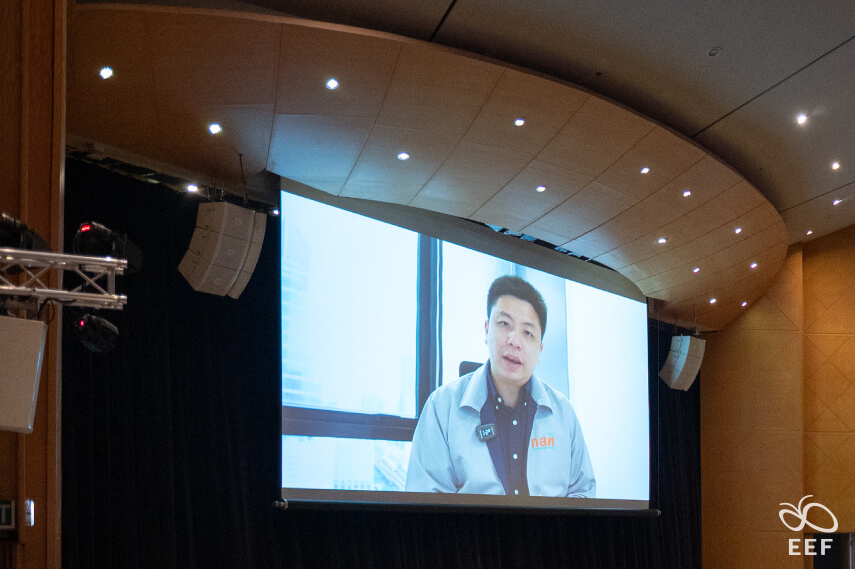
Dr. Kraiyos added that in the 21st century when the global society together needs empathy and generosity, the Equity Partnership’s School Network Season 4 project is thus driven by the process of social and emotional learning (SEL) development, which is divided into big 5 models, including 1) Job responsibility, 2) Emotional skills, 3) Empathy to others, 4. Openness for experience and 5) Social skills and engagement with others. This is under the project’s concept to create social cooperation and friendship, not only the cooperation between urban schools and rural schools but also to encourage all students to have confidence and readiness to show their potential through equality and equal collaboration.
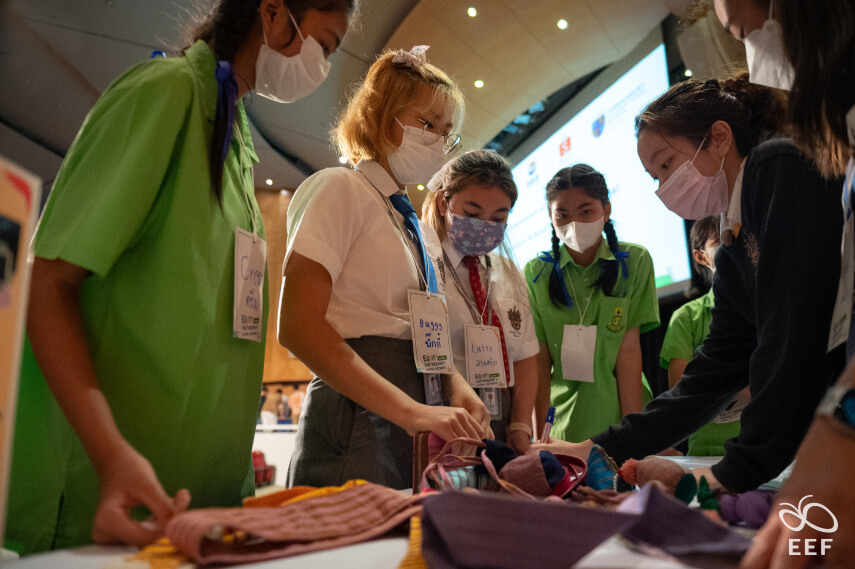
“Supporting measures to reduce educational inequity at the national level should be something that all sectors, starting from the government, private and public sectors, as well as educational institutions, can take part in. This can be witnessed from the outcomes of the Equity Partnership project in the past, which reflects that all parties are willing to give their full support if they are allowed to be part of the project to help reduce the inequity. Hopefully, this project will help support the renewal of children’s learning amidst the economic recovery toward an effective and sustainable educational system. It is now ready to expand the model up to the international level through the networks of international schools in Singapore and England, in compliance with the goals of EEF to see society joining together to create educational equity with real equity in every corner of the education system,” said Dr. Kraiyos.
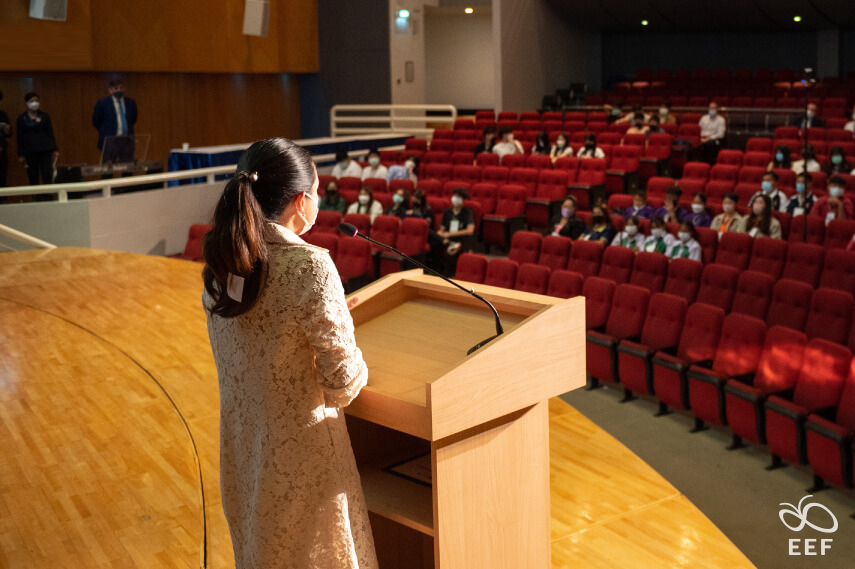
Mrs. Putthawan Suphatranun, Corporate Communications Director, Sea (Thailand), said that Sea (Thailand) is very pleased to be continuously part of the project cooperation until this 4th year by supporting the distribution channel of products developed by schoolchildren in online platforms like Shopee, in a bid to generate income back to the students, as well as to build future careers for students through the development of their E-Commerce business and digital entrepreneurial skills, in line with digital inclusion to enable the youths to apply those digital and technological skills to create income and benefits for the community. More importantly, they are novel skills amidst digital transformation.
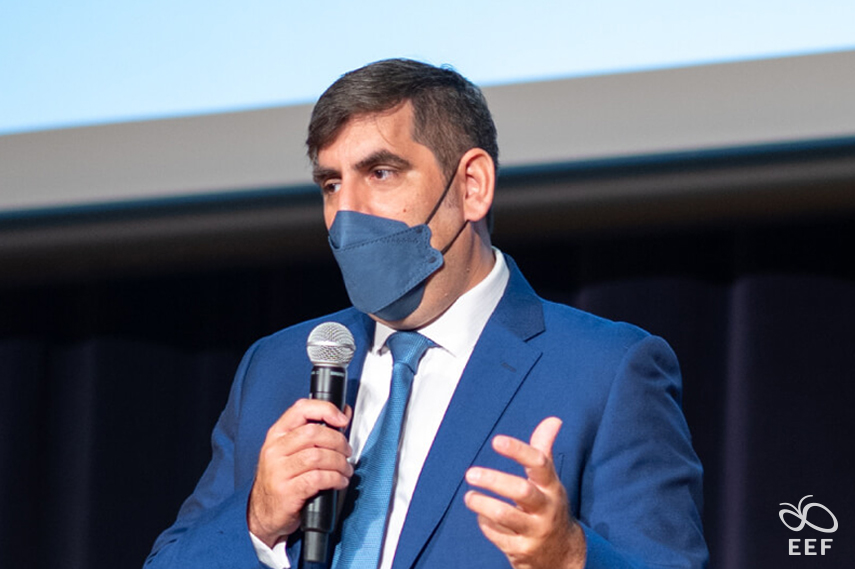
Mr. Gregory Threlfall – Director of Knowledge Dissemination, Shrewsbury International School, Bangkok said that the Equity Partnership program is an effective tool to reduce educational inequity and especially create equality between children from the city schools and those from provincial schools through valuable learning experiences, Not only through the friendship but also the integration of other beneficial skills to their lives now and in the future, such as marketing, product design, manufacturing, storytelling, and entrepreneurial skills towards the ultimate goal of creating a new generation of leaders for the country.
